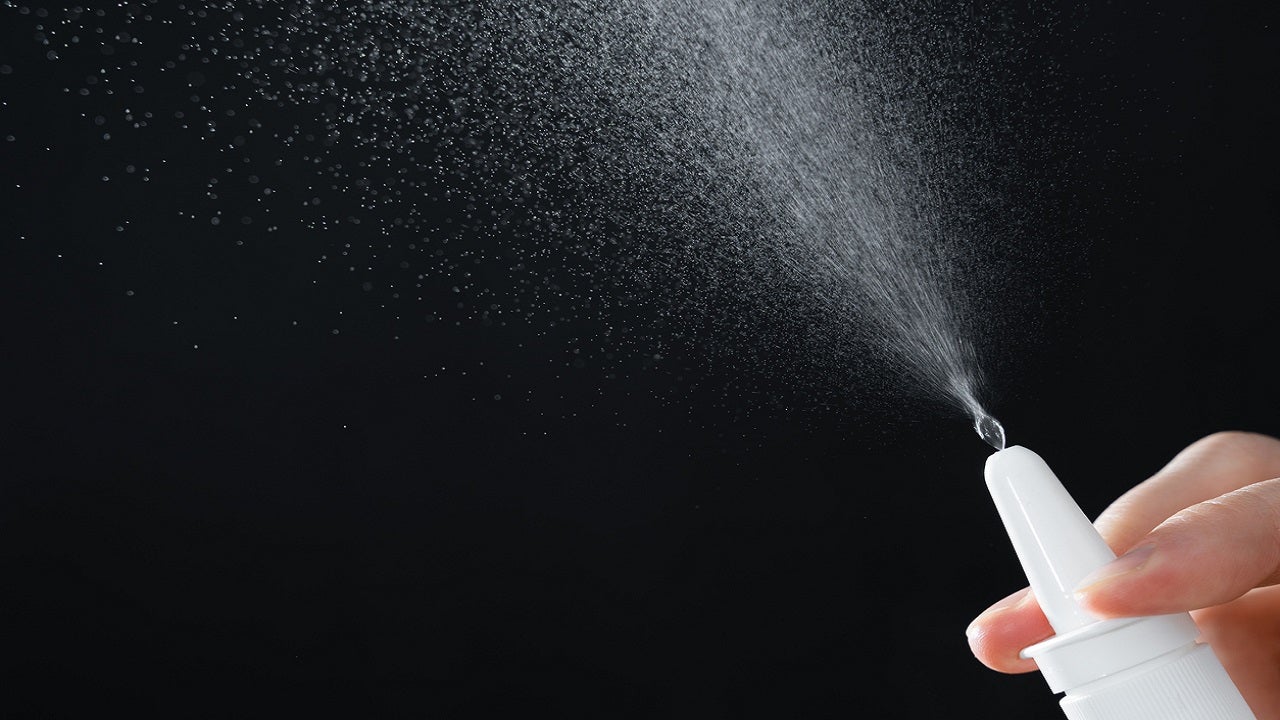The University of Oxford is studying a nasal spray version of the Oxford-AstraZeneca COVID-19 vaccine among 30 young, healthy volunteers and will assess the induced immune response, safety and any side effects.
The early-stage study will involve adults 18 to 40 years of age in the Oxford area, and the researchers will conduct four months of follow-up, according to a statement published on Thursday.
“Some immunologists believe that applying the vaccine to the site of the infection can increase protection, especially against transmission and minor illnesses,” said Dr. Sandy Douglas, clinical scientist and chief investigator of the study, in the statement. “We hope that this small safety-focused study will lay the foundation for future larger studies that are needed to test whether administering the vaccine in this way protects against coronavirus infection.”
ANTIVIRAL NASAL SPRAYING CAN COMBAT CORONAVIRUS, STUDY FINDINGS
Douglas suggested that the nasal spray could increase the absorption of the vaccine because some may prefer the method to an injection. She also suggested “practical advantages” provided by the spray, which could help with vaccination efforts in schools.
“[The nasal spray] it is an important first step towards increasing our range of options to reduce the spread and impact of COVID-19 globally, “added in part Dr. Meera Madhavan, principal researcher at the Jenner Institute.
CORONAVIRUS SURVIVOR EMBRACES DAUGHTERS AFTER MONTHS – LONG STAY HOSPITAL
AstraZeneca plans to apply for emergency authorization from the US FDA for its vaccine in the coming weeks, although the company has faced significant problems abroad after more than a dozen European countries have temporarily suspended vaccines due to reports of blood clots in some individuals vaccinated.
‘PREMATURE’ TO BLAME THE COVID-19 VACCINE FOR THE DEATH OF THE KANSAS WOMAN, HEALTH EMPLOYEES SAY
UK and EU regulators have confirmed that the vaccine does not increase the overall risk of blood clotting and, in fact, it probably reduces the risk because COVID-19 disease itself is a precursor to clotting. However, the suspended campaigns have shaken confidence in the vaccine, experts say. This week, the company was examined after the National Institute of Allergy and Infectious Diseases (NIAID) said it may have provided an incomplete view of the efficacy data. The data since the release showed 76% efficacy against symptomatic COVID-19.
Previous data reflected 79% effectiveness in preventing symptomatic infections and 100% effectiveness in preventing serious illness and hospitalization. The new analysis also reported 100% effectiveness “against serious or critical illness and hospitalization”.
Fox News’ Alexandria Hein contributed to this report.
